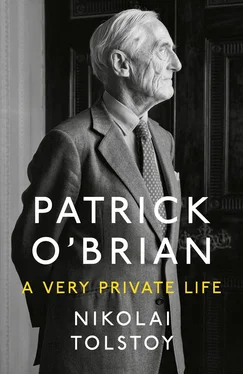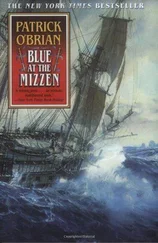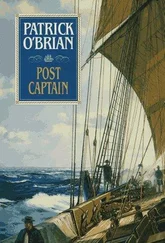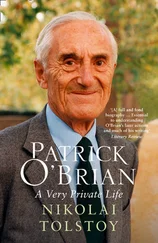The extremity of Xavier’s cruelty, and the inadequacy of his justification, are so hyperbolical as to suggest that Patrick expected readers to find the first as repugnant as the second was implausible. I suspect that, by grossly exaggerating his own misconduct, Patrick privately acknowledged it as indefensible. Its function was plainly cathartic. From a biographical point of view, the section in question (chapter IV) should be read in context. Xavier’s savagely frank account of his neglect and ill-treatment of his wife and son is set in the form of a confession, accompanied by expressed desire for absolution. Finding his formal confession to the town priest inadequate, he confides his lack of humanity and consequent fear of damnation to his sympathetic cousin Alain. Alain himself represents an alternative personification of Patrick: the gentle, inquisitive, sage adviser, which is how I for one found him when he confronted problems affecting those close to him. Chapters VIII and IX of The Catalans , recounting events from Alain’s perspective, derive almost verbatim from Patrick’s own experience.
Thus, one underlying function of The Catalans is to provide Patrick’s own confession. More than once in conversation with me he adverted to the Confessions of Jean-Jacques Rousseau, laying sardonic emphasis on the writer’s ingenuous account of his callous treatment of his children. Unsurprisingly, my mother observed that, on completion of Xavier’s bitter self-examination, Patrick found himself emotionally drained. ‘P. finished Chapter IV & got terribly depressed.’ [9] Конец ознакомительного фрагмента. Текст предоставлен ООО «ЛитРес». Прочитайте эту книгу целиком, купив полную легальную версию на ЛитРес. Безопасно оплатить книгу можно банковской картой Visa, MasterCard, Maestro, со счета мобильного телефона, с платежного терминала, в салоне МТС или Связной, через PayPal, WebMoney, Яндекс.Деньги, QIWI Кошелек, бонусными картами или другим удобным Вам способом.
The one person whom Patrick clearly would not have wished to understand the reality behind the father–son divide in The Catalans was his own son Richard. Equally, he must have appreciated the likelihood that the boy would read the book. As has already been seen, he followed his father’s literary career with filial pride. On learning in October 1953 of the book’s completion, he supplied a practical suggestion:
I am very glad to hear that you are having a holiday after completing the book. It seems to me that no sooner is one book out than you have finished another. Instead of writing with your hand why not get a tape machine or some such gadget or would that wreck everything? I do hope it comes out as you would wish it.
Next July, he enquired of my mother:
Has Dad heard anything of the last novel, and what is the title. Over in one shop (bookshop) I was peering round and I heard a customer ask for The Frozen Flame [the title of the British edition of The Catalans ]. It was a terrific thrill to hear that, especially when I know my father wrote it.
His friend Bob Broeder remembers the sensation this aroused at school: ‘Richard brought in a book written by his father, the book was called “The Frozen Flame” by Patrick O’Brian. Richard was very proud of this and the whole class were now more than happy to be associated with a boy whose father was an author.’
As has been seen, once Patrick had renounced the ill-considered scheme of acting as his son’s teacher, a renunciation which coincided with Richard’s arrival at years of discretion, their relationship became unremittingly warm. The boy proved more and more capable of appreciating the literature that Patrick loved. In January 1952 he sent Richard copies of Thackeray’s Henry Esmond and W.H. Hudson’s Green Mansions . It is scarcely conceivable that in 1953 he would have published anything he believed likely to prove wounding to the boy. It seems he was confident that Xavier’s confession would be read purely as a literary construct.
Regarding the element of savage exaggeration in Xavier’s confession, it is further worth considering a linked episode (what Patrick himself terms ‘the parallel disaster’), in which his morbid concern to exaggerate the heinousness of his sin becomes yet more evident. Xavier acquires a dog, which proves disobedient and ill-behaved: so much so, that he thrashes it until he eventually ‘reduced it to a cowering, hysterical, incontinent, useless cur’. [10] Конец ознакомительного фрагмента. Текст предоставлен ООО «ЛитРес». Прочитайте эту книгу целиком, купив полную легальную версию на ЛитРес. Безопасно оплатить книгу можно банковской картой Visa, MasterCard, Maestro, со счета мобильного телефона, с платежного терминала, в салоне МТС или Связной, через PayPal, WebMoney, Яндекс.Деньги, QIWI Кошелек, бонусными картами или другим удобным Вам способом.
Both Patrick and my mother were fond of dogs, and adored their own Welsh hunt terrier Buddug. In the early summer of 1952, while he was in the midst of writing The Catalans , my mother was obliged to visit England in pursuit of the disastrous Opel car. Always uneasy in her absence, Patrick became increasingly on edge as the days went by, and when after three weeks on the day of her expected return he received a telegram announcing its postponement to the following day, he found himself ‘feeling very much the pathetic poor one and generally angry. Poor Budd chose this one day to be bad, and I whipped her sore.’
The nature of her crime and the harshness of the punishment remain undisclosed. Two aspects are, however, clear. In the first place, Patrick was confessedly in an exceptional state of tension. Secondly, this was almost certainly the sole occasion on which the faithful Buddug was ever ‘whipped’. Not only is there no record in my mother’s diary of such an occurrence at any other time, but I am confident she would not have permitted it. It was surely this uncharacteristic episode that inspired Patrick’s awkwardly obtruded account of Xavier’s sadistic treatment of his dog. Patrick was deeply ashamed of having lost his temper with Buddug, and inserted the passage in his novel as a further form of exorcism or self-castigation. [fn19] Конец ознакомительного фрагмента. Текст предоставлен ООО «ЛитРес». Прочитайте эту книгу целиком, купив полную легальную версию на ЛитРес. Безопасно оплатить книгу можно банковской картой Visa, MasterCard, Maestro, со счета мобильного телефона, с платежного терминала, в салоне МТС или Связной, через PayPal, WebMoney, Яндекс.Деньги, QIWI Кошелек, бонусными картами или другим удобным Вам способом.
Finally, on this significant topic, there remains Patrick’s passing allusion to the formal act of confession, which Xavier finds inadequately emollient when he repairs to the town curé, Father Sabatier. What he required was not a bland rite of forgiveness, but surgical exposure and extraction of the moral cancer of which his conscience accused him.
Читать дальше












